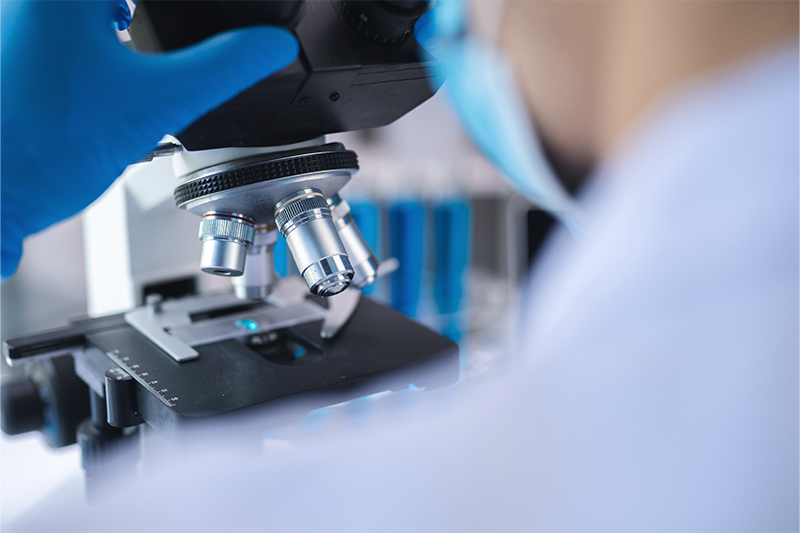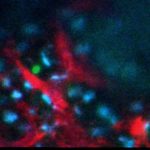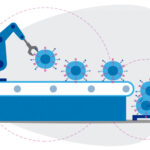AI-designed proteins open doors to new immunotherapies

Artificial intelligence (AI) is increasingly helping drive advances in science and medicine — including cellular signaling. In a recent study, published in Cell, a team of Boston Children’s researchers used groundbreaking AI-based protein design technologies to generate large numbers of immune cells — specifically T cells — in the laboratory and to enhance immune responses against diseases ranging from cancer to viral infections.
Notch signaling is a key cellular pathway that is central to many cellular differentiation processes and essential in transforming human immune cells into T cells that target viruses and tumors. Previously, researchers have activated Notch signaling in the laboratory by immobilizing Notch ligands on tissue culture dishes. However, this method is not applicable for therapeutic use in humans.
A library of custom-designed soluble Notch agonists
Now, researchers in the lab of George Daley, MD, PhD, co-founder of the Stem Cell and Regenerative Biology Program, and their collaborators have engineered a synthetic activator of Notch signaling to promote T-cell production in liquid suspension culture rather than on a flat 2-dimensional surface.
The team took advantage of recent developments in computational protein design using the Rosetta protein design tool. Developed in the University of Washington laboratory of David Baker, PhD, who won the 2024 Nobel Prize in Chemistry in part for this technology, the tool enables the design of proteins from scratch. Boston Children’s research fellow Rubul Mout, PhD — a former postdoctoral fellow in the Baker lab — and his colleagues in the Daley lab developed a library of custom-designed soluble Notch agonists and systematically tested their ability to activate the Notch pathway and support T cell development and function.
Using these agonists, the researchers demonstrated the large-scale generation of T cells in a laboratory bioreactor — an important advancement given the growing demand for T cell production in hospitals worldwide for chimeric antigen receptor (CAR) T cell-based cancer immunotherapies. In addition, when the agonists were injected into mice during vaccination, the animals displayed significantly improved T cell responses, indicating an enhanced immune response. Notably, the treatment resulted in increased production of memory T cells, which are crucial for long-term impact of vaccines.
“AI-driven protein design is a broadly enabling platform technology that we’ve exploited to develop a synthetic molecule that facilitates T cell manufacture for clinical use and enhances immune responses when delivered in vivo,” says Daley. “We’re excited that this approach can target T cells to tumors while also stimulating their cytotoxic functions.”
“Being able to activate Notch signaling opens up tremendous opportunities in immunotherapy, vaccine development, and immune cell regeneration,” adds Mout, the principal scientist for the study. “But what excites me most is using this technology to engineer synthetic proteins that simultaneously bridge T cells and cancer cells, boost T cell-mediated killing, and neutralize the immunosuppressive tumor microenvironment. Our goal is to develop next-generation immunotherapies and cancer vaccines.”
Learn more about research in the Stem Cell and Regenerative Biology Program.
Related Posts :
-

One-time treatment could block a deadly form of graft-versus-host disease
Even when a bone marrow transplant cures leukemia or lymphoma, patients can still pass away from graft-versus-host disease (GVHD), in ...
-

A potential Diamond-Blackfan anemia treatment swims into view
Zebrafish, besides being popular in aquariums, make good stand-ins for studying human diseases. They share about 70 percent of their genes ...
-

Following blood stem cells in the body could yield better, safer treatments
Blood stem cells make all the different kinds of blood and immune cells in our body. Scientists have long been ...
-

Making ready-made CAR T cells for cancer immunotherapy
In CAR T-cell immunotherapy, T cells from a patient’s own blood are engineered to carry so-called chimeric antigen receptors (...





